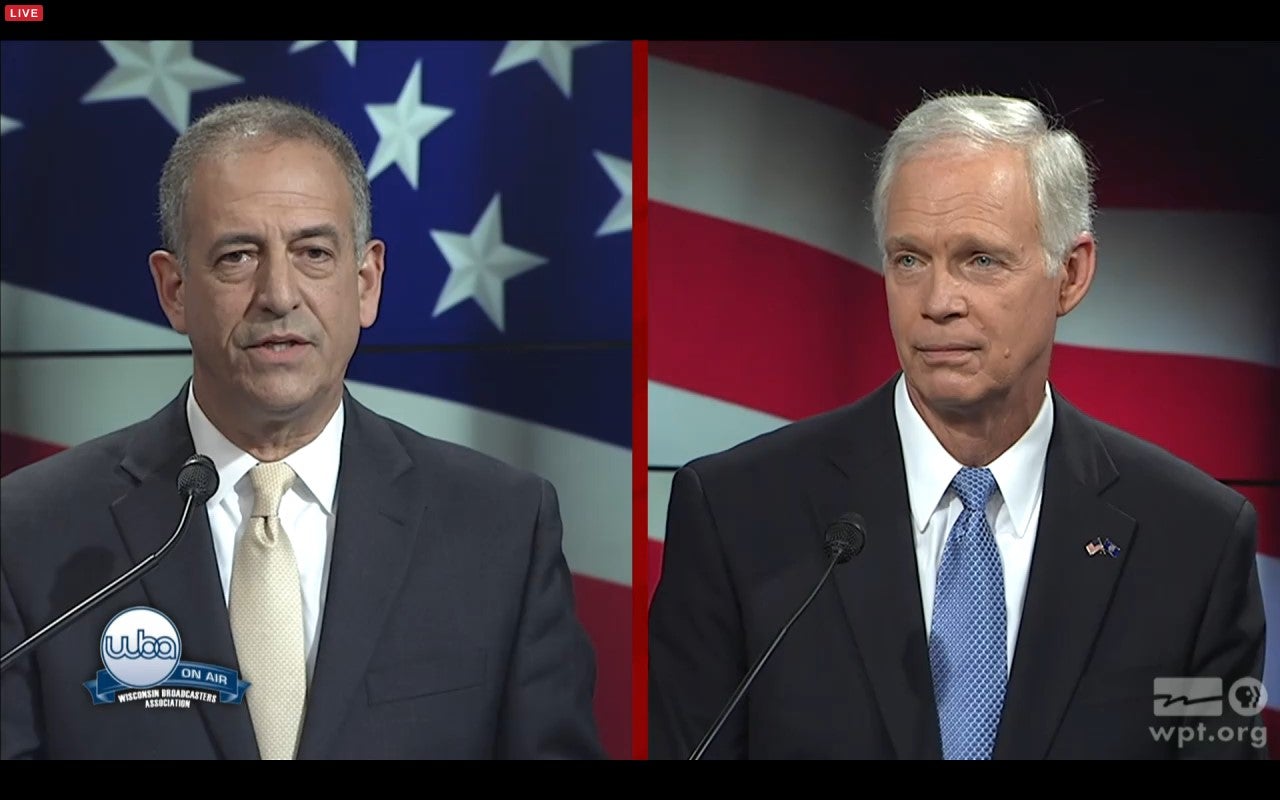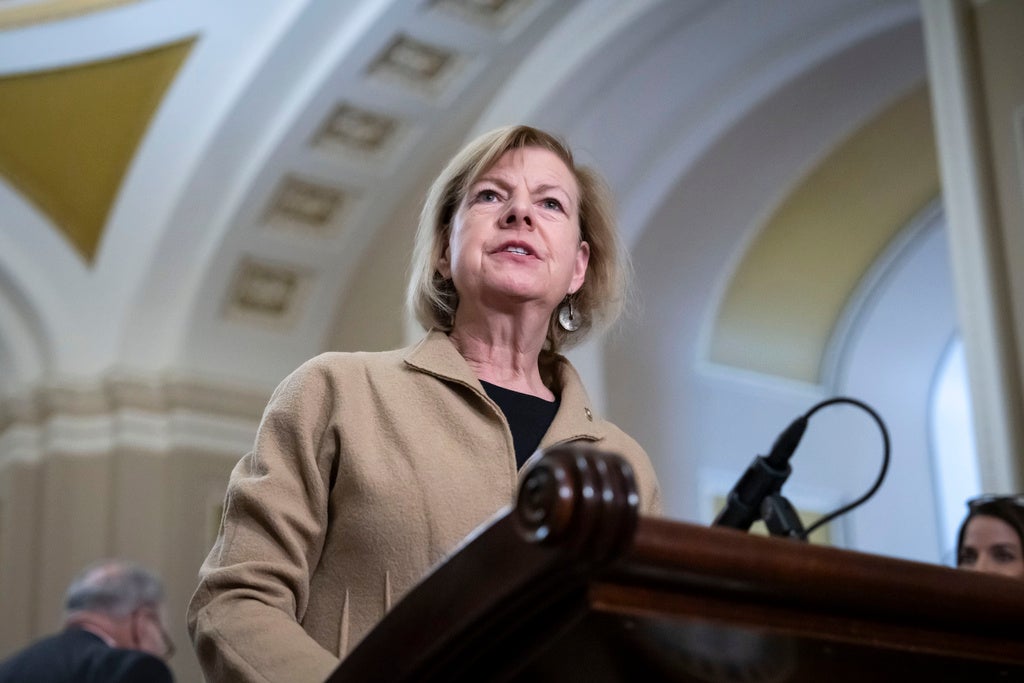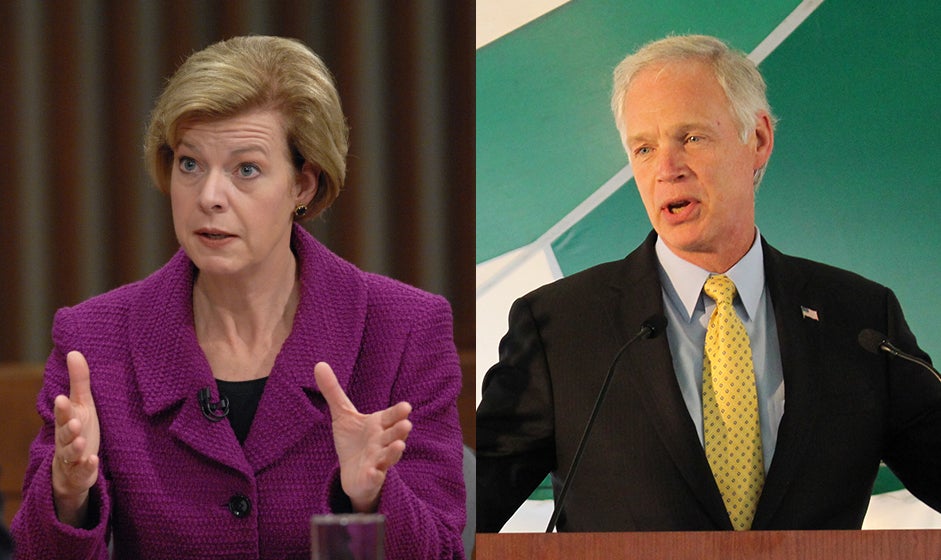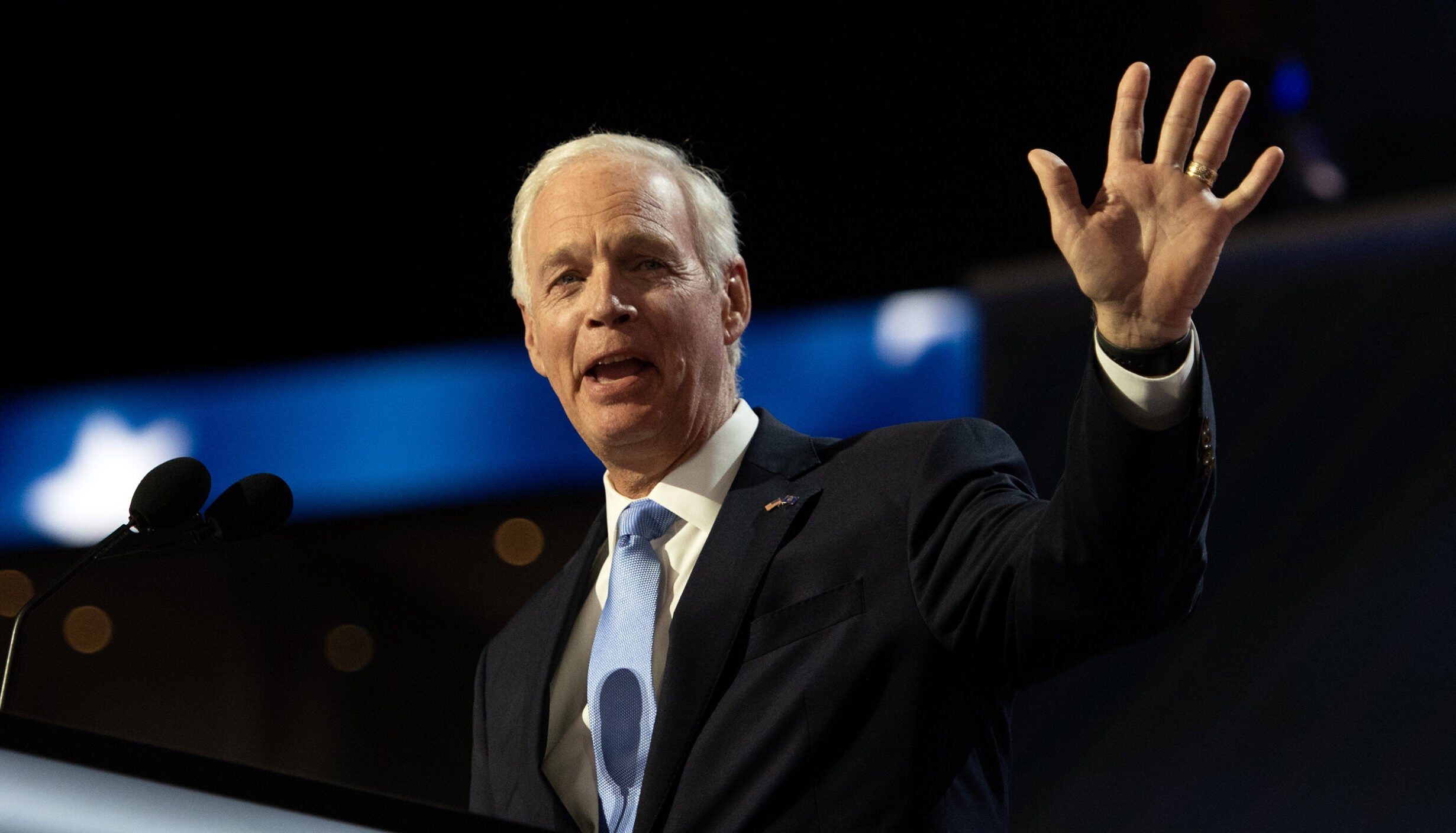Republican U.S. Sen. Ron Johnson and Democratic challenger Russ Feingold sparred over their parties’ nominees for president and President Barack Obama’s landmark health care law at the first of two debates held Friday in Green Bay.
Asked whether they stood by their party’s nominee for president 100 percent, Johnson spoke highly of Republican nominee Donald Trump’s platform while never mentioning Trump by name.
“I’m supporting the areas of agreement,” Johnson said, citing Trump’s plans for the economy, the military, securing the border and appointing conservative judges. He described Trump as somebody who wants to change Washington.
News with a little more humanity
WPR’s “Wisconsin Today” newsletter keeps you connected to the state you love without feeling overwhelmed. No paywall. No agenda. No corporate filter.
“That’s certainly what I went there to do,” Johnson said. He also attacked Feingold for supporting Democratic presidential nominee Hillary Clinton.
“(He) must be about the last American who thinks Hillary Clinton is trustworthy,” Johnson said.
Feingold said Johnson’s support of Trump was irresponsible.
“This is no person to be a role model for the people of our country, and frankly, I think it will be very frightening for the rest of the world if we elected Donald Trump,” Feingold said.
Feingold stood by his party’s nominee unambiguously, saying, “I am confident, having worked with Secretary Clinton in a number contexts, that she will be an excellent president.”
When it came to Obama’s Affordable Care Act, Johnson said he still hoped to repeal the law known as Obamacare.
“Obamacare has been an unmitigated disaster,” Johnson said. “We’ve got to go to free market, patient-centered reforms.”
Feingold said Johnson was ignoring the progress Obamacare has made, and that if Johnson had his way, it would be devastating.
“That means 20 million people who have been covered under the Affordable Care Act would lose their coverage,” Feingold said, adding Johnson’s position would also hurt people who’d gained coverage for preexisting conditions under the law.
“The Affordable Care Act takes care of that. He would remove that,” Feingold said.
A Reprise of 2010
In tone, the debate was reminiscent of the 2010 campaign that saw Johnson defeat Feingold. As he did six years ago, Johnson repeatedly painted Feingold as a career politician who sought to grow government. Feingold, meanwhile, portrayed Johnson as an ideologue who was either unprepared or unwilling to address the complex issues facing average voters.
The two showed a clear contrast when asked whether the U.S. should join other countries in mandating paid family leave. Johnson opposed it.
“Paid family leave, mandated by the federal government, would increase the cost to those employers, not allowing them to have money to increase wages and benefits,” Johnson said.
Feingold said Johnson’s position showed he wasn’t listening to his constituents.
“It really is a shame that instead of siding with the families of this state that are making this request, Senator Johnson will only go with the position that is oriented to the corporate view,” Feingold said. “It’s time we basically joined the modern world and respect what parenting is and what it means to be able to bond with a child.”
The two also differed sharply when it came to Social Security, with Feingold noting, as he did in 2010, that Johnson had called the program a “Ponzi scheme.”
“He has specifically advocated George Bush’s idea of private accounts,” Feingold said. “That is about the scariest thing.”
Feingold said he would preserve Social Security by making wealthy people contribute more to the program.
“It’s a serious, specific proposal,” Feingold said.
Johnson said Social Security was fundamentally flawed because it invests in government bonds rather than other assets.
“I want to save Social Security,” Johnson said. “The way to solve and save Social Security and Medicare and solve all these other problems is economic growth.”
Asked about the federal government’s role in making higher education more affordable, Feingold said he supported legislation to let people refinance student loans the same way they can refinance a mortgage. He attacked Johnson for opposing the plan.
“Where is the concern about the terrible position that these young people are being placed in?” Feingold asked.
Johnson said the government was already helping students deal with higher education costs, and that adding another program would only grow government debt.
“We already have 38 different programs that lower payments,” Johnson said.
Johnson and Feingold are scheduled to debate again at 8:30 p.m. on Tuesday in Milwaukee.
Wisconsin Public Radio, © Copyright 2025, Board of Regents of the University of Wisconsin System and Wisconsin Educational Communications Board.






